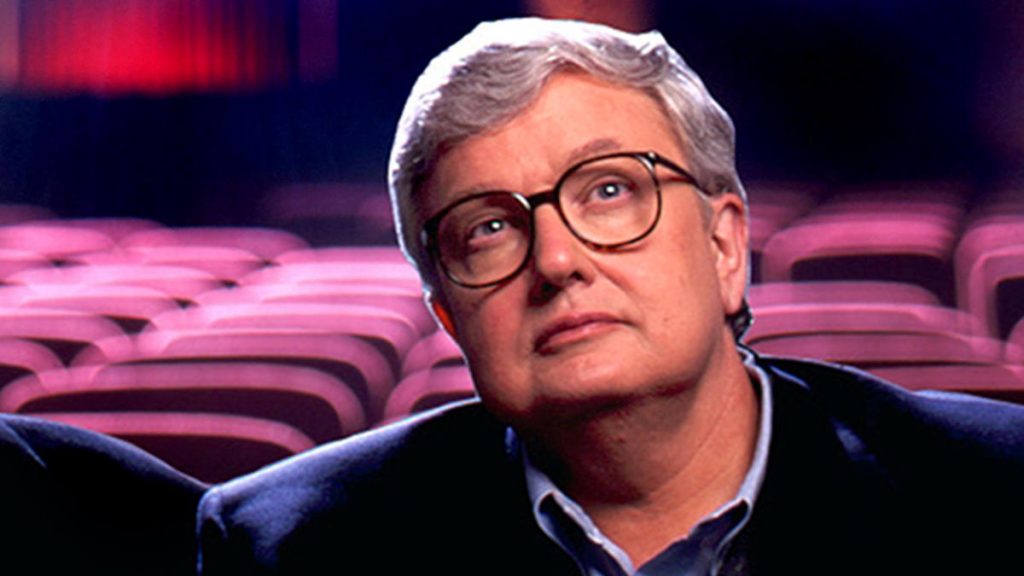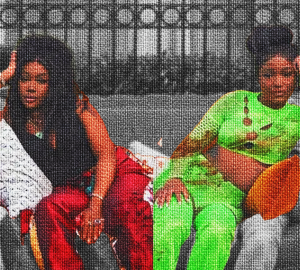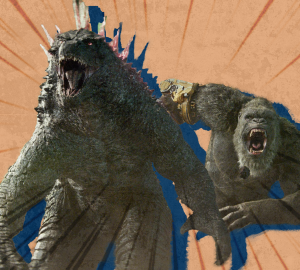A love letter to film criticism

“We live in a box of space and time. Movies are windows in its walls. They allow us to enter other minds, not simply in the sense of identifying with the characters, although that is an important part of it, but by seeing the world as another person sees it.”
This quote by the late, great film critic Roger Ebert could very easily describe the experiences that countless of us experience when going to the cinema. The lights dim, the audience (hopefully) quiets down and the screen illuminates, ready to transport us into worlds we could never imagine — all told through ways that no other form of media can ever replicate. In this sense, just about every film we watch becomes an out-of-body experience, whether it be a short animation or a three-hour-long epic drama, as we witness the world through the eyes of someone else.
To many, film critics can put a halt to that experience. We do nothing but complain, nitpick and compare in the eyes of most, not allowing the fun of watching a movie to simply take hold. At the same time, critics can look down at average moviegoers with similar passions. Rather than trying to challenge themselves and analyze thought-provoking, unconventional storytelling, average audiences will find more than enough satisfaction simply watching an “Avengers” movie and going home, never thinking once about the cinematography, editing, performances, pacing, art direction and so on.
It’s a tough balance to pin down, but, at the end of the day, there is no true right or wrong way to watch a movie. The best films, the ones that have remained timeless over the years, can usually appeal to every sensibility, even if it doesn’t lean in any direction in any particular way. “The Wizard of Oz” is a great example. Average audiences have found more than enough entertainment over the years with it, critics are similarly entertained, while also marveling at the technical and narrative aspects.
However, the world has become a much different place since “The Wizard of Oz” premiered in 1939. While we have become closer connected over time, we have simultaneously become more divided in numerous aspects of life. Religion, class, politics, ethnicity. All aspects that we, whether we acknowledge it or not, make up our day-to-day lives and how we view one another. The same can be said for how we view entertainment. Sites such as Rotten Tomatoes, Metacritic and IMDB, as well as plenty of places on social media, have seemingly birthed an ever-growing toxic environment for movie lovers of all kinds. On many of these sites, there are options for both critics and fans to rank films, leading to polarizing results that can cause damage in ways unimaginable.
Probably no other example fits better in this scenario than Disney’s recent “Star Wars” films. It is jaw-dropping to see the shift in energy generated by fans and critics in a brief four years, from overwhelming excitement for “The Force Awakens” in 2015 to sickly disgust in 2019 for “Rise of Skywalker.” Whether you enjoy the films or not, there’s no denying that the impact these movies have had on moviegoers everywhere has been quite conflicting to say the least. Fans who grew up with the saga often despised the changes with characters and plot lines, whereas critics often praised the newer elements, but rolled their eyes when the series took repetitive elements from the earlier films.
This harsh line has only grown longer with fans and critics constantly arguing on social media, cast and crew members from the films being sent death threats/being bullied off of social media and even an attempt by fans to remake 2017’s “The Last Jedi” when the actual film proved quite disappointing to many of them. It goes to show that audiences and critics are looking for drastically different factors when watching movies, but the level of animosity between both groups has become jaw-dropping.
Will we ever see a time where critics and average movie goers can see eye to eye? Well, no, but this is far from a negative outlook. Film, like all art, is meant to be an experience that viewers can immerse themselves into. Whether that comes from inspecting themes and parallels, latching onto a character or studying the cinematography, we all walk in the theater with different wants and hopes to obtain by the end. And when we come out, whether those hopes were fulfilled will ultimately depend on us and how we want to shape our experience.
And that’s simply why movies are so magical of an art form. Unlike books, radio or music, film can tell stories in massively diverse ways. It is the ultimate realization of the human experience because there is no one human experience. A movie is the accumulation of hundreds of hard-working individuals projecting their hopes, desires, fears and dreams on the screen and sharing in what they make of this crazy world we live in with others. And no matter how you want to take that journey and what you want to take from it, there will always be something to discuss and share, letting that journey live on far longer than the two hours you sit in the theater.
Having written for The Connector as the Arts and Entertainment editor for the past three years, I can gladly say that I’ve done my part, not as a critic, but as a storyteller in sharing these journeys. I hope I was able to convey something meaningful and encourage healthy conversation about this beautiful art form that so many of us couldn’t live without. To say it has been an honor to work with these amazingly talented individuals and be able to share my passions for this long would be an understatement and I want to thank you all for this lovely experience. Keep watching movies and saying what’s on your mind — your story is valuable too.



























